Things have been a bit busy for me, as I posted an article for insider on the protests. But since my last post, things have only worsened in Hong Kong. On Friday, 4 October, the HK government decided to invoke the Emergency Regulations Ordinance, a law dating back to the colonial era to ban all face masks at the protests. Officially, Carrie Lam said, this was expected to “deter” younger protesters from participating in the “riots“. Somehow, the HK government expected mayhem, as everybody got warnings to go home early. On that very evening and the following week-end, days of rage blazed across Hong Kong.
Blazes across the city
The same evening the face mask ban was announced, people faced off with the police in several locations across Hong Kong. In Wong Tai Sin, beyond blocked the roads, protesters also built up huge brasiers with trash and other components such as bamboo.
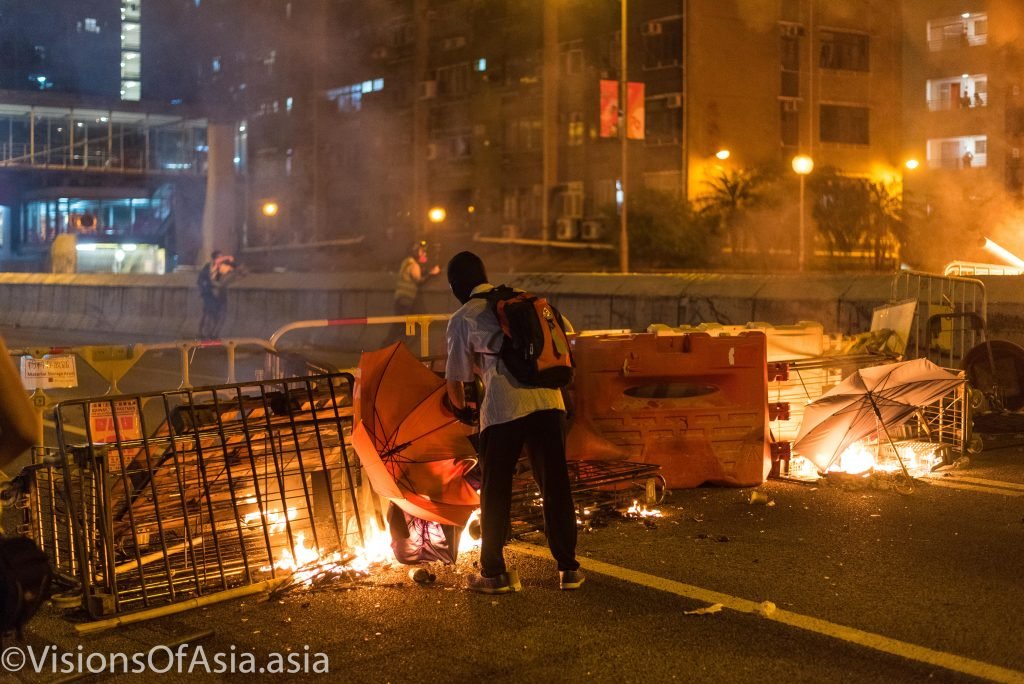
One of the most important fires gave off huge billowing black smoke in a residential area.
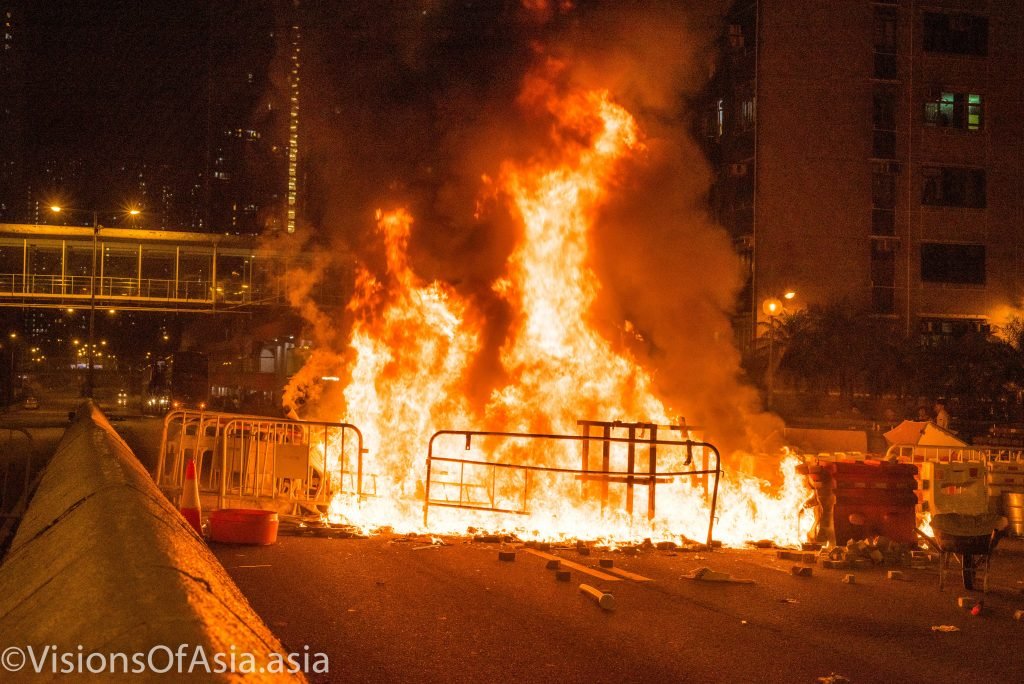
At the same time, MTR stations were flooded and the police were busy fending off protesters who kept attacking them with molotov cocktails and bricks and even cans of coke.
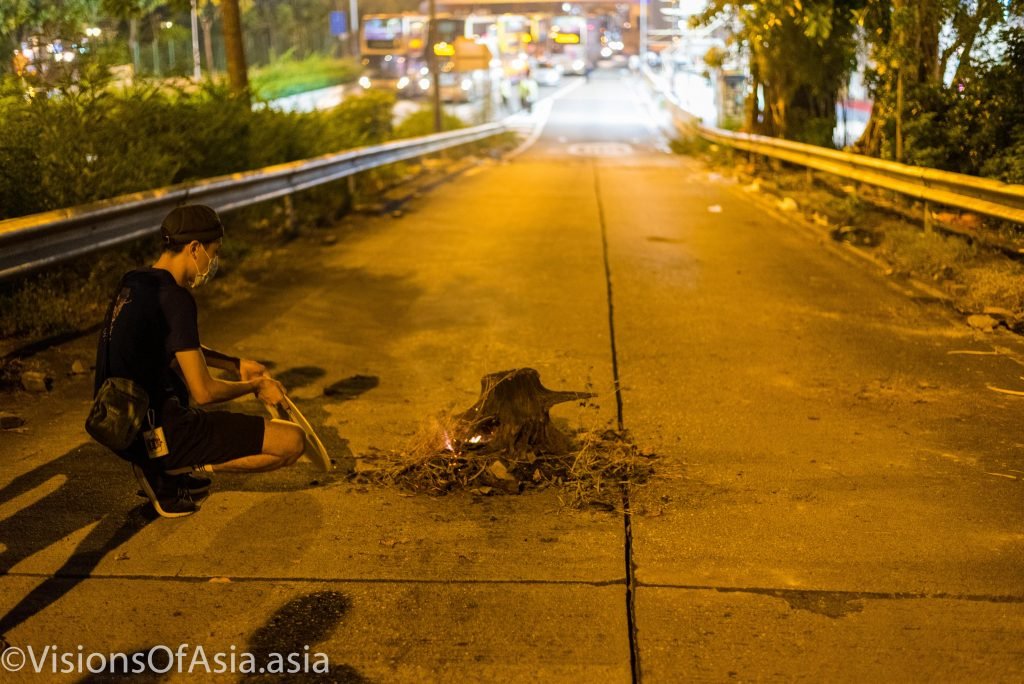
As we came closer to the bridge, we found police had been on an overpass, playing a game of cat and mouse with protesters who kept bombarding them with Molotovs and other projectiles. Police kept shooting rubber bullets.
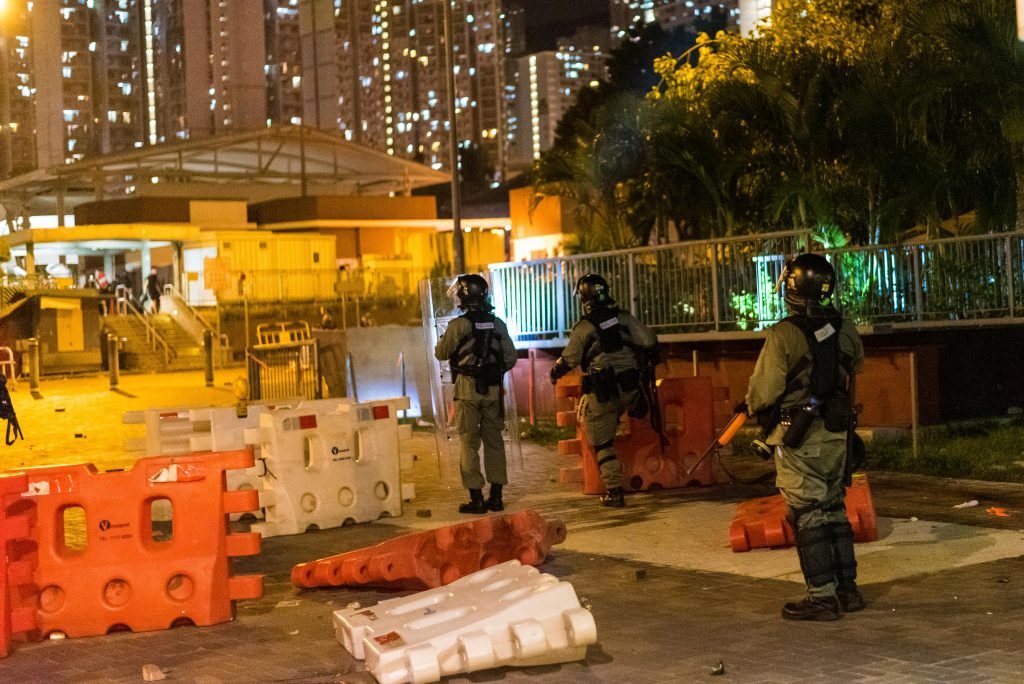
Widespread damage
As I marched beyond the scene of the clashes, I found that protesters had opened a fire hydrant, flooding the street under a high-power jet.
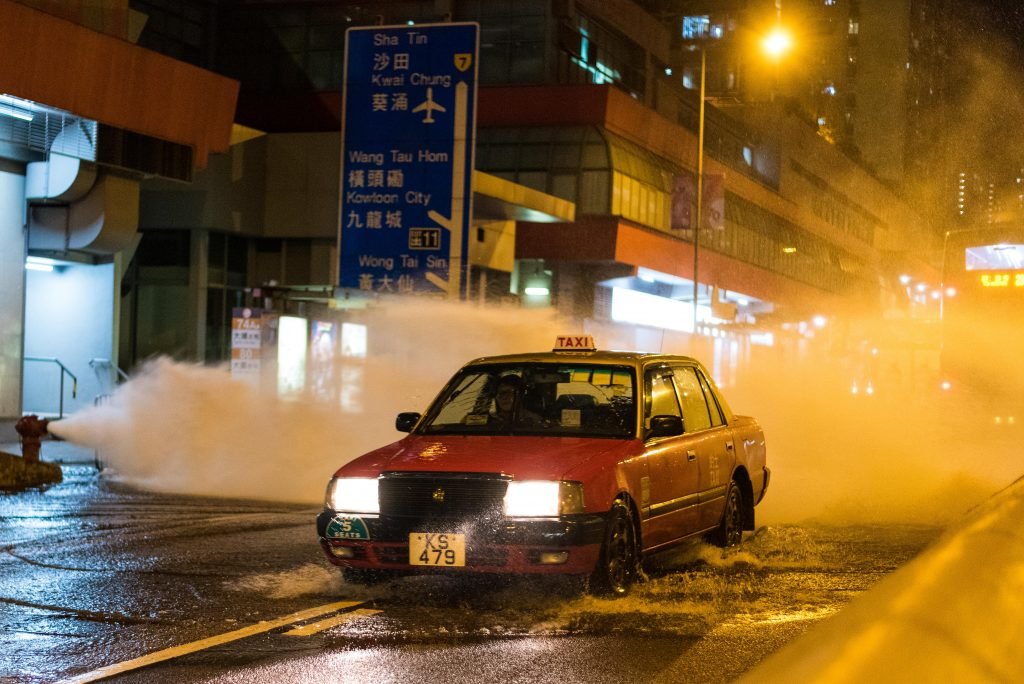
The MTR station of Wong Tai Sin, beyond being vandalized and filled with graffitis, was also flooded with a hose.
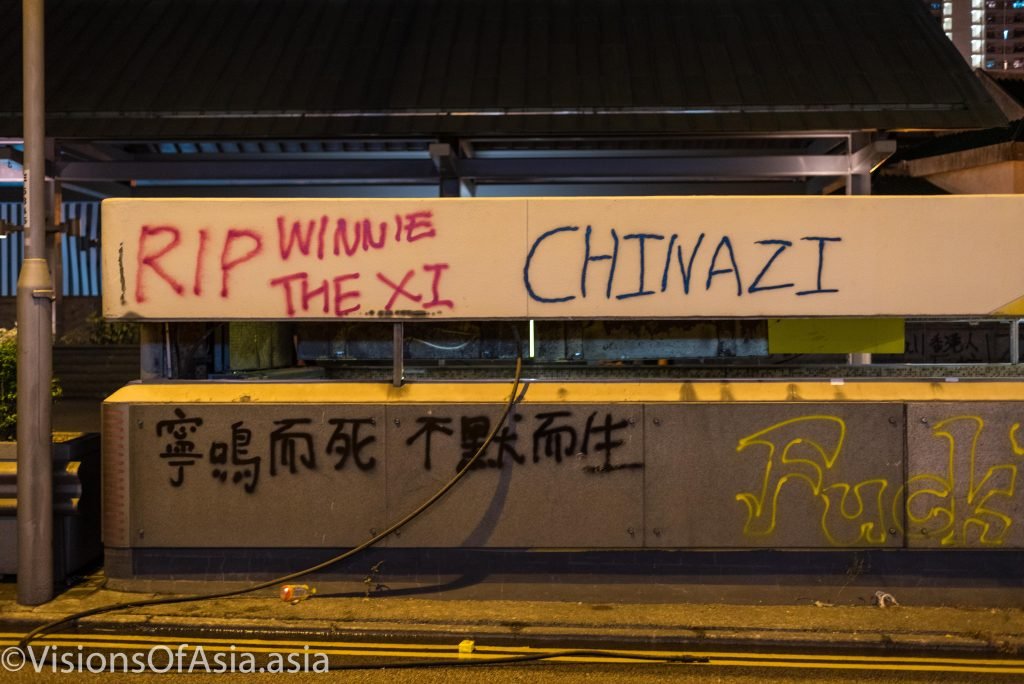
And some protesters armed with molotovs were standing watch, hoping to target the police.
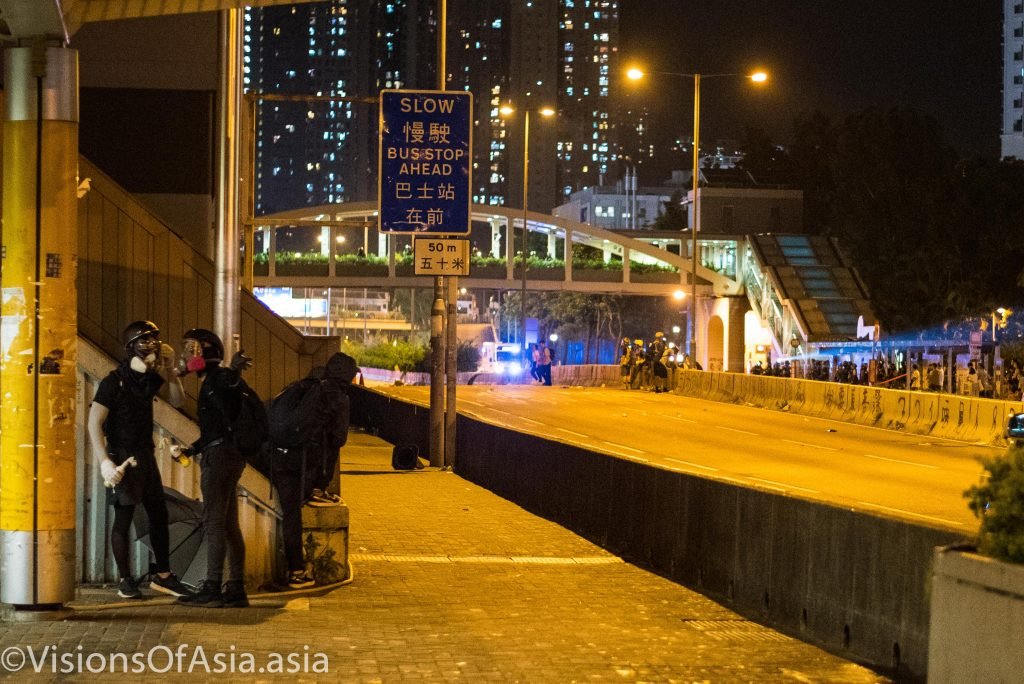
The rage was really present in the air that night and the incidents of Wong Tai Sin repeated in several other districts of Hong Kong, transforming the day into the first of several days of rage.
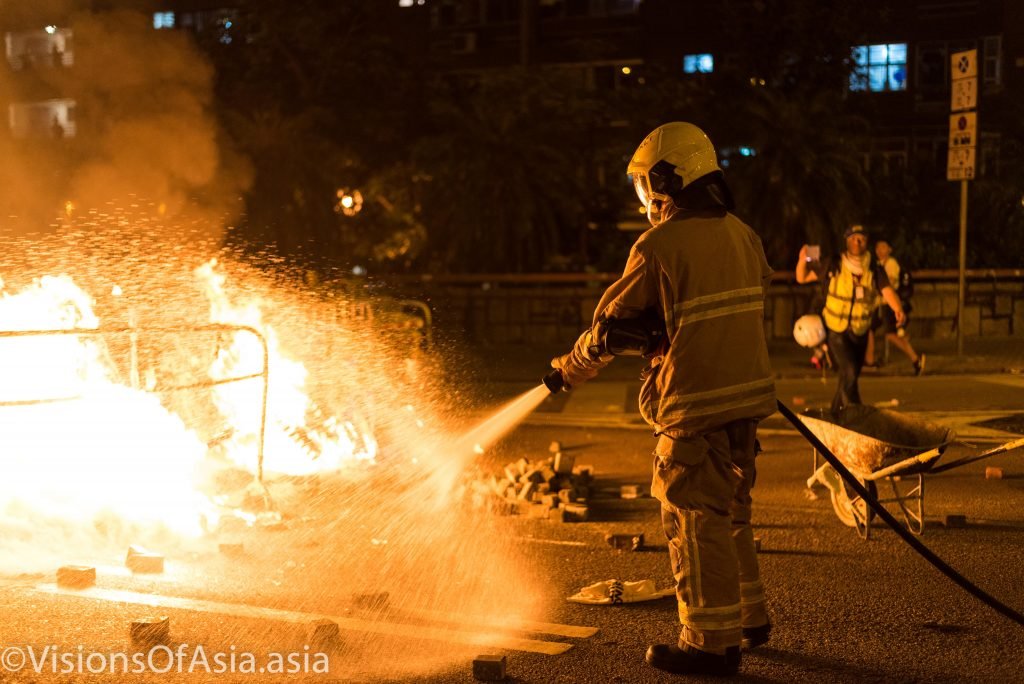
The strange thing is that the Government was perfectly aware that the mask ban law would lead to such consequences, as warnings went out early in the afternoon. The whole endeavour got observers thinking about the real reason for implementing such an ineffective law. It would seem in later days, that this was a last-ditch effort to get things under control or at least to show Beijing that HK was trying to do something about it.

